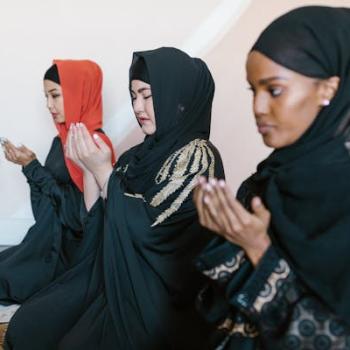Steven James (director of the classic American documentary Hoop Dreams) and Alex Kotlowitz’s The Interrupters (2011) looks at the work of a group of violence preventers—the Interrupters—in Chicago. Inspired by an article on CeaseFire—the violence prevention organization the Interrupters work for—that ran in the New York Times Magazine by Alex Kotlowitz in 2004, the film follows three of CeaseFire’s violence interrupters for a year.
Dr. Larry Slutkin, an epidemiologist at the University of Illinois-Chicago, created CeaseFire as a way to combat the violence epidemic that afflicted the city from a public health perspective. From the organization’s website: “We combine Science and Street Outreach to track where violence is heating up and then cool the situation down.”
In the film, the Interrupters aim to prevent violence a variety of ways: harrowingly mediating conflicts on the ground, performing community outreach endeavors, and to working individually with youth as mentors. They mention their own gang experience and resolve to engage in peaceful conflict resolution in their work. The underlying belief is that violence can be prevented through intervention—that it is learned behavior that can be influenced by individuals who are personally familiar with similar backgrounds. The film’s message—that people aren’t good and bad and that anyone, regardless of their past, is capable of change—is compelling and comes across as particularly poignant during the month of Ramadan.

One of the interrupters the film features is Ameena Matthews. She’s one of only a couple of women who works at CeaseFire—and is Muslim. The film follows her as she interrupts violent conflicts, shares her personal background as the daughter of gang member Jeff Fort and former life of “drugs, guns, party, fun,” to a life committed to preventing conflict, mentors a young woman struggling with her parole, and interacts with youth and the community to promote the message of non-violence at vigils and funerals as a means to dealing with conflict.
Some of the film’s most compelling moments came when the film looked at the personal lives of the interrupters and how it intertwines with their work. In Ameena’s instance, this included her daughter’s birthday party at a rollerskating rink (where she invites the youth she mentors to no avail), prayer at the mosque where her husband is the imam, and participation of mosque members in her community outreach work. Through these scenes, the film quietly profiles the social embedded-ness and commitment of American Muslims in their communities. Ameena’s decision to open herself in the film was a careful process itself, as she discussed with Terry Gross on NPR’s Fresh Air earlier this month:
The issue is that I fought so hard to get to where I am today. And what I do in the streets, it’s personable and it’s personal but they wanted the storytelling about who Ameena is inside and out of being a violence interrupter … I have children and some people don’t look at my life — as far as my dad being who he is and as far as my journey and where I’ve come — [as a] nice thing. And it was hard for me to let that guard down and let them in.
The film has been incredibly well-received by film critics, several of whom have called it one of the best documentaries of the year—it currently has a 100% fresh rating at Rotten Tomatoes. Ameena herself has been highly praised in the film:
I don’t know whether Ameena Matthews has any plans to run for office — conventional wisdom might hold that a Black Muslim woman with a criminal record has a limited political future — but she’s got my vote, whether it’s for president or dogcatcher or something in between. –Andrew O’Hehir in Salon
Ms. Matthews, partly because of the contrast between her petite size and outsized personality, and because of her ancestry and background, is a documentary gift. –Manohla Dargis in The New York Times
I can’t think of (m)any Muslim women represented in American documentaries where faith is not the primary subject of the film. Ameena comes across on the screen as a passionate woman committed to her work, a devoted mother, and a compassionate mentor to youth. While Ameena’s faith is shown as a cornerstone in her life, the film portrays the larger portrait of how Ameena’s personal background reflects in her daily work. There are no stereotypes here of the submissive Muslim woman theme—instead there are critical accolades for her and the other interrupters’ portrayals in the film. Ameena is a commanding presence—an engaging, brave, and inspiring woman—in this raw, important American documentary.
The Interrupters is currently playing in limited release across the U.S. and U.K. Here’s a list of current and upcoming screenings at the film’s website.













